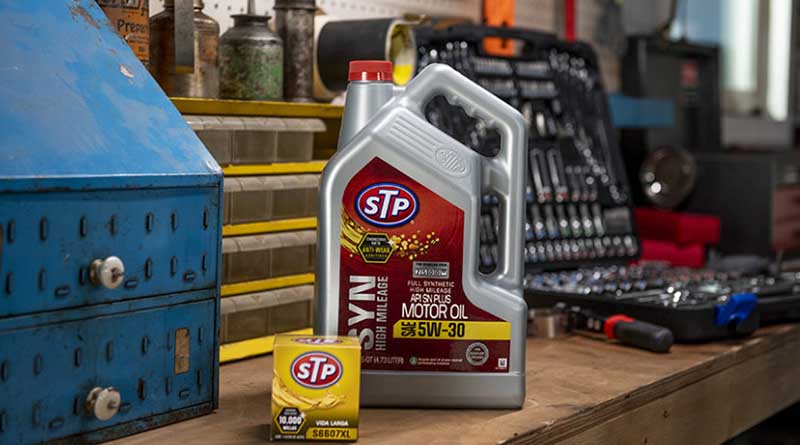High-mileage oil is a type of motor oil formulated for vehicles with higher mileage, usually exceeding 75,000 miles. It uses special additives designed to address the unique challenges older engines face. Ultimately, the oil has several advantages that can keep your engine running smoother and longer.
1. Combating Wear and Tear
One of the primary benefits of high-mileage oil is its ability to combat wear and tear. Over time, the metal components within your engine experience friction. This friction can cause microscopic abrasions on these parts, leading to a gradual loss of performance and efficiency.
High mileage oil contains anti-wear additives that form a protective film on engine components, minimizing metal-to-metal contact and reducing friction. The additives can also help to reduce the formation of sludge and varnish, which can further impede engine performance.
2. Addressing Leaks
Another key benefit of high-mileage oil is its ability to address leaks. As an engine ages, the gaskets and seals that prevent oil leaks can become brittle and less effective. The oil may contain seal conditioners that help to swell and revitalize the seals, reducing the likelihood of leaks. This can prevent messy oil drips and help maintain proper oil pressure within the engine, which is crucial for optimal lubrication.
3. Using Viscosity To Reduce Oil Consumption
Oil’s viscosity refers to its thickness, which plays a significant role in how it lubricates your engine. Traditional motor oil thins out as it heats up, which can be problematic in older engines with increased clearances between moving parts.
High-mileage oil often has a higher viscosity index, meaning it stays thicker at higher operating temperatures. This helps maintain a more consistent oil film and reduce oil consumption, a common issue in high-mileage vehicles.
4. Synthetic vs Conventional High Mileage Oil
High-mileage oil comes in both synthetic and conventional varieties. Synthetic oil is generally more expensive than traditional oil but offers several advantages. Synthetic oil flows more easily at cold temperatures, which is important for reducing wear and tear during engine startup. Additionally, synthetic oil tends to last longer, requiring fewer oil changes.
Synthetic high-mileage oil, such as oil synthetic 5w30, can be a worthwhile investment for high-mileage vehicles. 5w30 refers to the oil’s viscosity rating, which indicates a good balance between cold-weather performance and high-temperature protection.
5. When to Consider High-Mileage Oil
Some signs indicate your car might benefit from high-mileage oil. The signs include noticing oil leaks, experiencing increased oil consumption, or hearing engine rattles. Consulting your car’s owner’s manual for the recommended oil type and viscosity is always an excellent first step. Also, before converting to high-mileage options, remember to check the oil filter housing.
Ultimately, high-mileage oil is an investment in your vehicle’s longevity. By providing superior lubrication, addressing leaks, and minimizing wear and tear, it can help keep your car running smoothly for many additional miles. If you are unsure of the benefits of high-mileage oil for your vehicle, contact a local auto parts dealer or mechanic for advice. A professional can help you make an informed decision and avoid costly mistakes.
Also see:
- Exploring the Golden Triangle by Car in 5 days
- XIAOMI SU7 electric sedan with 800km range revealed – everything you need to know
- California’s Cash for Cars: Your Reward for Eco-conscious Driving Choices




